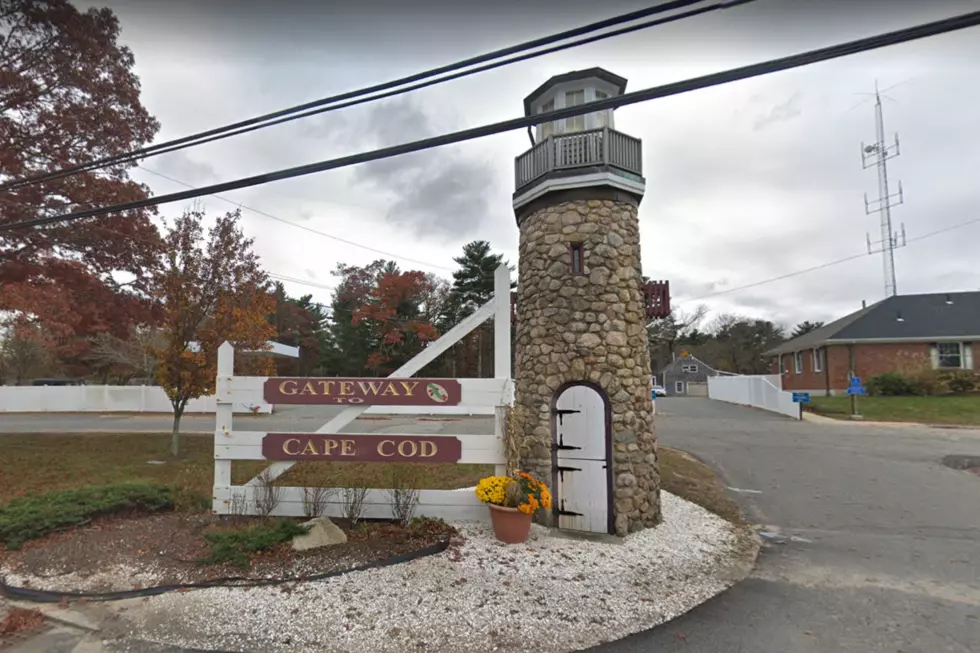
South Shore Chamber Pushes for Wareham Slots Parlor and Horse Track
Business officials on the South Shore are getting behind legislation that would allow the Massachusetts Gaming Commission to license a slots parlor rather than a full-scale casino for the southeastern part of the state and would pave the way for a planned gambling facility in Wareham.
The developers behind the planned $300 million Wareham Park project, the Notos Group, have asked state lawmakers to support a bill (H 4070) filed by Rep. Susan Williams Gifford to give casino regulators that latitude so they can build a thoroughbred horse track and slots parlor in Wareham and said Thursday that the South Shore Chamber of Commerce is now backing the legislation.
In letter to both Gifford and Notos executive Thomas O'Connell, Chamber President and CEO Peter Forman wrote that the chamber's board of directors supports giving the Gaming Commission leeway to license either a slots parlor or a resort casino.
"We find it troubling that Southeastern Massachusetts is almost effectively blocked under current law from even considering a gaming option," Forman, a former House minority leader, wrote to Gifford. "Your legislation will enable an open and competitive process that will lead to the best possible solution for the region, one that compliments the tourism industry and the region's economic strength."
The chamber, which represents 1,300 business members across a 25-community region, did not endorse the Notos Group's project specifically, but said it is "worthy of study and consideration" and Forman said the chamber is certain the Notos development would be "a high-quality project" if the legislation passes.
The bill, which is still being considered by the Joint Committee on Economic Development and Emerging Technologies, would allow the Gaming Commission the discretion to issue either a full-scale casino license or a slots parlor license in its southeastern Massachusetts region, but not both. The bill is a crucial piece of the plan for a $300 million mixed-use development proposed by the Notos Group.
Facing a Feb. 5 deadline to make a recommendation on the bill, lawmakers pushed the committee reporting deadline back to Feb. 28. A recommendation did not come by that date and the House on Monday adopted a second extension until June 1. The latest House extension order is pending before the Senate.
Notos, which is led by the family behind the Marina Bay complex and Granite Links Golf Club in Quincy, wants to build a thoroughbred horse track and slots parlor as part of a complex that would also include a new Cape Cod League baseball park, restaurants, and a hotel, but the one slots parlor license allowed under the 2011 expanded gaming law has already been issued to Plainridge Park Casino in Plainville.
But the resort casino license for southeastern Massachusetts has never been issued and the Gaming Commission is in the early stages of deciding whether to forge ahead with a new round of bidding for the Region C resort casino license, which requires a minimum investment of $500 million on top of an $85 million licensing fee. A slots parlor license requires a licensing fee of $25 million and a minimum investment of $125 million.
If the bill were to pass, Notos would still have to convince the Gaming Commission to solicit proposals for a slots parlor in Southeastern Mass., and then to select its project from the range of proposals that come in.
Wareham Town Administrator Derek Sullivan and Wareham Redevelopment Authority member Richard Swenson told the Committee on Economic Development and Emerging Technologies at a hearing in October that the Notos project with a slots parlor would be a game-changer for the town.
But Sen. Marc Pacheco, who represents Wareham, told the committee that Gifford's bill would actually cut against the "collective vision" of the 2011 law, which called for three resort-style casinos and a lone slots parlor as the strategy that would "be best for our economy and creating jobs equitably in each region."
"We are now having legislation filed to go way beyond what our collective vision was about three destination-based casinos and I don't want to see Southeastern Massachusetts, Region C, treated differently than the other regions," Pacheco, who represents Taunton where the Mashpee Wampanoag tribe has designs on building its own casino, told the committee. "I think this legislation actually corrupts the process and legislation like it corrupts the process until we have completed the vision that we had for the commonwealth."

More From WBSM-AM/AM 1420









